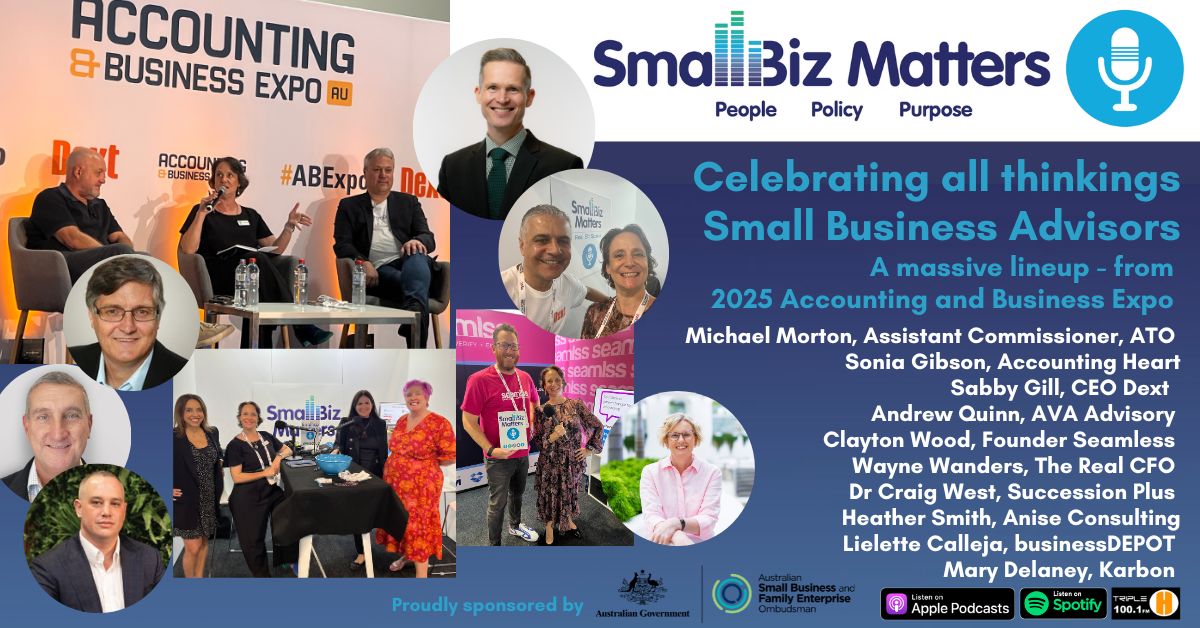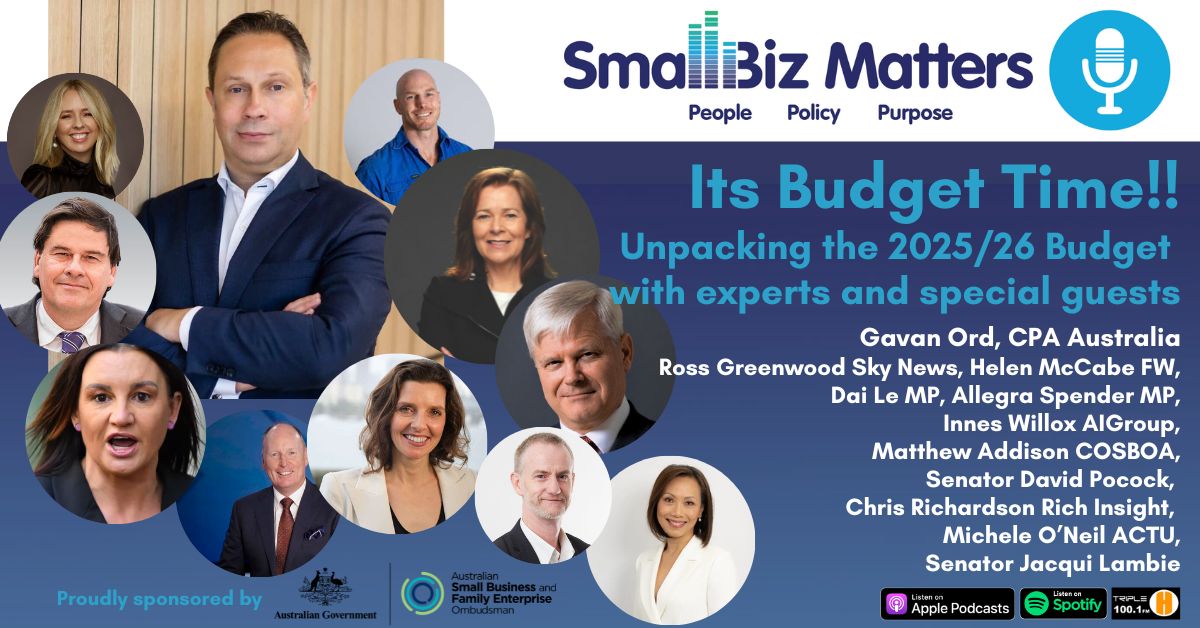Work-Life Balance
|Small Biz Matters – a half hour program each week where you can work ON your business rather than IN it.
Small Business Bookkeeping Tips
with Alexi Boyd from Boyd Office Management Services
Date: November 2014
In a lot of our programs we’ve covered admin, business processes, organisation and getting your back end under control but in this program we’re looking into HOW to achieve that elusive work-life balance. Our guest is Cyril Peupion. Cyril is an expert in his field and author of Working Smarter and Living Better.
His clients include the small business owners through to the multinationals – the practicalities are all the same no matter the size - and he’s here to help you with practical tips on work life balance.
It's a topic you’ve all asked us to cover and I think our guest would agree is crucial to the success of your business.
Part 1 – Welcome to Cyril Peupion and the definition of Work/Life balance from the expert
- So welcome to Cyril, and thanks for coming on the show.
- On your website you show how people think of work/life balance in this way, and it is the same response we’ve had in our own survey of local businesses.
- Come home earlier to see my kids
- Have more time to go to the gym and look after my health
- Avoid bringing my work stress home
- Avoid waking up at night thinking about what I forgot to do
- A lot of people talk about work / life balance in terms of time but how would you measure this as a success?
- Is it happiness? Is it time spent with family? Is it feeling in control, or is it
- You mention in your book about not neglecting your passions but I would argue that for a small business owner their passion IS their business, why do you think it’s so important to find another passion away from work?
Part 2 – Working Smarter
- You make the bold statement in your book :
- Most of us have never been taught how to work.
What a bold statement to start with. However in our view this is one of the most important reasons for lack of execution and lowers than expected performance. Most people are committed to their role and want to do a good job. They are neither lazy nor un-willing. But they are not working efficiently - they work hard but not always smart.
- So, they have never been taught how to work.that we’ve never really been taught HOW to work. Can you explain what you mean by this?
- Can you give some examples of companies you’ve worked with where they have NOT been working affectively?
- And how has this affected their performance?
- In terms of small business the immediate issue which comes to mind is time wasting, can you provide us with some tips and tricks which help save time and therefore money?
(image courtesy of https://www.flickr.com/photos/smemon/)





